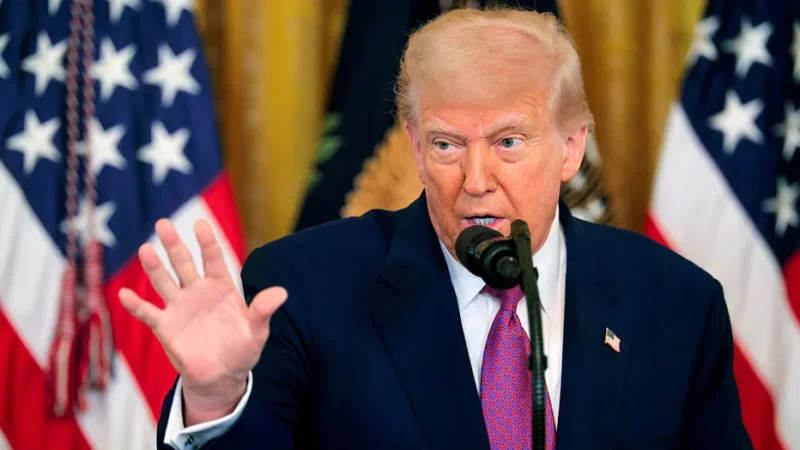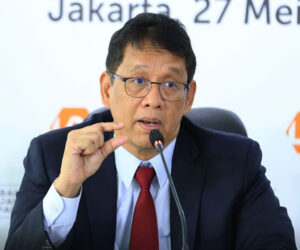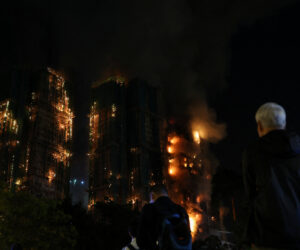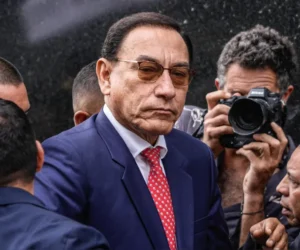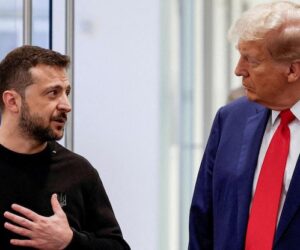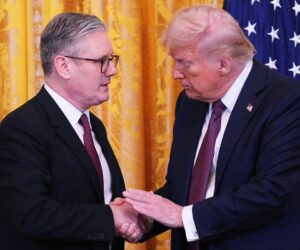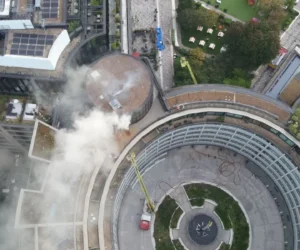European and Middle Eastern leaders have welcomed a new US peace plan for Gaza, even as doubts remain over whether Hamas will agree to the proposal.
The plan, announced at the White House by President Donald Trump alongside Israeli Prime Minister Benjamin Netanyahu, lays out a framework for ending the war that has devastated Gaza since October 2023. It calls for an immediate halt to fighting, the release of 20 Israeli hostages within 72 hours, and the return of the remains of more than two dozen others believed dead, in exchange for the release of hundreds of Palestinian detainees.
The 20-point document, which has been handed to Hamas officials by Qatari and Egyptian mediators, stipulates that the militant group will have no role in Gaza’s future governance.
Instead, a technocratic Palestinian committee would administer the enclave under the supervision of an international transitional body called the “Board of Peace,” to be chaired by Trump. Former UK Prime Minister Tony Blair is set to serve on the body, which will oversee reconstruction and governance.
Trump described the initiative as “a historic day for peace,” but warned Hamas that rejection would prompt US backing for Israel to “finish the job of destroying the threat of Hamas.”
Netanyahu reinforced that message, saying Israel would “finish the job” if the plan failed. In a later video statement, however, he reiterated his opposition to a Palestinian state, even though the US plan leaves the possibility open.
Despite Netanyahu’s hard line, several governments praised the proposal. The Palestinian Authority called Trump’s efforts “sincere and determined,” pledging cooperation with Washington and regional partners. The foreign ministers of Saudi Arabia, Egypt, Qatar, Jordan, Turkey, the UAE, Indonesia, and Pakistan issued a joint statement hailing Trump’s “leadership” and stressing that the agreement should lead to a two-state solution with Gaza integrated into the West Bank.
European Council President Antonio Costa said he was “encouraged by Prime Minister Netanyahu’s positive response,” urging all parties to “seize this moment to give peace a genuine chance.” UK Prime Minister Sir Keir Starmer and French President Emmanuel Macron also expressed support, with Macron pledging France’s readiness to contribute to implementing the deal. Italy’s Prime Minister Giorgia Meloni described the proposal as a “potential turning point.”
The plan envisions the destruction of Hamas tunnels and weapons facilities, a staged withdrawal of Israeli forces, and large-scale economic investment to rebuild Gaza. It rules out occupation or annexation by Israel and promises that Palestinians will not be forced from Gaza, but instead offered “the opportunity to build a better Gaza.”
Hamas has not formally responded but has signaled resistance to elements of the plan. A senior official said that while the group is open to reviewing proposals, any deal must guarantee Israel’s full withdrawal from Gaza and secure Palestinian rights, including the establishment of a state based on 1967 borders. He insisted Hamas’s weapons remain “a red line” until occupation ends.
The announcement comes just days after Netanyahu delivered a combative speech at the UN General Assembly, condemning recent recognitions of Palestinian statehood by Western countries as a “mark of shame.” That speech prompted dozens of diplomats to walk out.
The war in Gaza began after Hamas’s 7 October 2023 attack on southern Israel that killed about 1,200 people and saw 251 taken hostage. In response, Israel launched a campaign that Gaza’s health ministry says has killed more than 66,000 people. A UN-backed body has confirmed famine conditions in Gaza, and a UN commission recently concluded that Israel has committed genocide a charge Israel fiercely denies.
Whether the new plan can overcome hardened positions remains unclear, but international pressure on both sides is intensifying as the humanitarian crisis deepens.
Erizia Rubyjeana
Follow us on:

